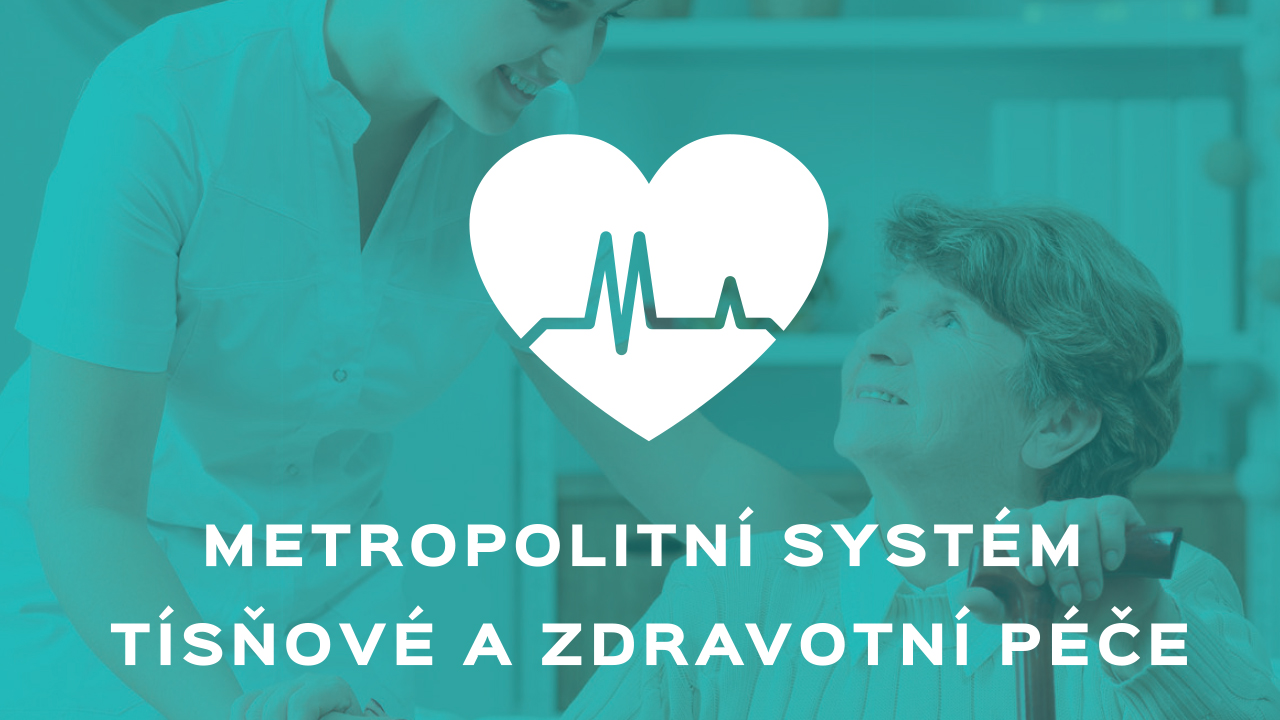
Prague City councillors sanctified “eHealth – metropolitan distress and health care system” project final report. Distress care is a fieldwork social service through which an incessant voice and electronic communication are being provided to clients. Complete report with detailed information about the project’s completion is available at smartprague.eu web portal.
Distress care is designed for people confronted with permanent health and life danger risk. In the case of a critical situation, it secures professional support and help.
“In practice, this service looks as follows: a client on the grounds of a recommendation from a physician is given a lent electronic device – a “wrist band” – thanks to which by simply pushing an SOS button a call for help is sent if their health gets worse. The device can for instance detect falling and automatically switch on the alarm. It is these two alarm types when clients find themselves in solitary in a household, were the most frequent during the project,” stated Prague Mayor Zdeněk Hřib.
By the pilot project which lasted, with preparations being included, from May 2017 till January 2021, Operator ICT, PLC. (OICT) were commissioned within Smart Cities concept fulfilment. Totally 113 pieces of SOS buttons devices were utilized and the service itself was used by 180 clients altogether. On average, on monthly basis, 5,4 alarms per client were registered during the project’s run. Average costs of Prague City Hall for one wrist band operation were 2950 crowns.
“I strongly support distress calls development in the capital city area. I view it as one of the building blocks of fieldwork network, which covers community care service, personal assistance, and home health care. The integration of smart technologies with high-quality care enables people to stay longer in their home environment, increases the quality of life and reduces the pressure drawn upon long-stay social services,” added Milena Johnová, Prague City councillor for social policy and public health.
“Little awareness about this service amidst lay and expert public alike is strongly related to this (i.e. the service). For anyone interested, be it service users themselves, family or informal caretakers it is hard to get oriented among the differences between respective providers and agencies providing the service, but the same applies to the service quality and extent. The main goal of the project was to suggest how to develop and effectively operate metropolitan distress and health care system and thus to contribute to safety and life standard increase of people with decreased self-reliance,” stated OICT General Manager Michal Fišer.
According to his words, another goal was to integrate social and health areas. Although it is about social service, its usage can be, except social workers, by a physician as well, be it during a hospital discharge or general practice physician at whom the person is registered. Municipal Department of Social Affairs has just been given a task to incorporate the tested system into the future plans inclusive of the connection with general practice physicians.
OICT has been actively addressing and informing general practice physicians’ offices and health-care facilities about distress care and eHealth project. Thanks to this a long-term cooperation with seven general practice physicians did originate among various Prague’s city districts. With Military University Hospital and Teaching Hospital Královské Vinohrady, a memorandum about cooperation on this project was made. Informal cooperation took place with Gerontological Center at Prague 8 and Czech Alzheimer Society, Ct. And other general practice physician offices. The main meaning of the cooperation with all institutions was to give information about distress care, about the project and also personal addressing of people whom this service is designated for.
OICT in cooperation with CTU UCEEB (University Centre for Energy Efficient Buildings CTU in Prague) concurrently defined innovative distress care service technical requirements to secure the highest service standard.
“Thanks to the eHealth pilot project we managed to gain an exceptionally good, detailed feedback from users themselves. From this univocally follows that the need for distress care is a fact and its importance is about to increase in the future. The information which was due to the project gathered is possible to utilize not only for The Capital City of Prague but for national strategic documents or other regions as well,” filled in OICT’s Deputy Chairman and Project Management and Funds Section Director Matej Šandor.